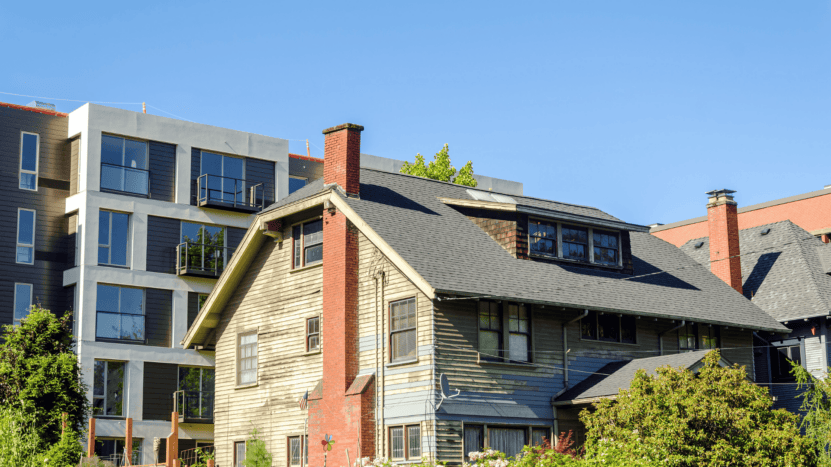Are you a prospective homebuyer looking for a great deal on a property? Have you heard about foreclosed homes and wondered if they could be your ticket to homeownership? Buying a foreclosed home can indeed be a smart financial move, but it’s essential to understand the process, potential pitfalls, and financing options involved. In this comprehensive guide, we’ll walk you through what foreclosed homes are, how to buy them, and the financing methods available for these unique real estate opportunities.
What is a Foreclosed Home?
Before diving into the process, let’s clarify what a foreclosed home is. A foreclosed home is a property that was once owned by someone who couldn’t meet their mortgage payments. As a result, the lender takes possession of the property and seeks to sell it to recover the unpaid debt. Foreclosed homes can vary in condition and location, but they are typically sold at a lower price than comparable homes in the market.
Why Consider Buying a Foreclosed Home?
- Potential Savings: One of the primary reasons to consider a foreclosed home is the potential for significant cost savings. These properties are often priced below market value, making homeownership more accessible for budget-conscious buyers.
- Investment Opportunity: Investors often target foreclosed properties because of their potential for appreciation. With some renovation work, you can increase the home’s value and potentially profit when you decide to sell.
- Variety of Options: Foreclosed homes come in various styles and sizes, allowing you to find a property that suits your preferences and needs.
How to Buy a Foreclosed Home
Now that you understand what foreclosed homes are and their advantages, let’s delve into the step-by-step process of purchasing one:
- Research and Preparation:
- Begin by researching local real estate listings, foreclosure auctions, or government-owned properties.
- Determine your budget and get pre-approved for a mortgage to know how much you can afford.
- Find Foreclosure Listings:
- Look for foreclosure listings on real estate websites, through real estate agents, or at local courthouses.
- Consider working with a real estate agent experienced in foreclosures to guide you through the process.
- Property Inspection:
- Once you identify a potential foreclosed property, schedule a thorough inspection. Foreclosed homes may have hidden issues, so a professional inspection is crucial.
- Bidding and Purchasing:
- If you’re interested in a property at auction, attend the auction or participate online. Be prepared to make a competitive bid.
- When buying from a bank or government agency, negotiate the purchase price and terms.
- Secure Financing:
- Decide on the financing option that suits you best. Common options include conventional loans, FHA loans, or VA loans.
- Consult with a mortgage lender to get pre-approved or pre-qualified for your chosen loan type.
- Due Diligence and Closing:
- Complete any required paperwork and inspections.
- Close the deal by signing the necessary documents and transferring funds.
Financing Your Foreclosed Home
Choosing the right financing for your foreclosed home is crucial. Here are some common financing options:
- Conventional Loans:
- These are the most common home loans and are offered by private lenders.
- Conventional loans typically require a higher credit score and a down payment of at least 3% to 20%.
- FHA Loans:
- Backed by the Federal Housing Administration, FHA loans are suitable for buyers with lower credit scores and smaller down payments.
- Down payments for FHA loans can be as low as 3.5% of the purchase price.
- VA Loans:
- If you’re a veteran or active-duty service member, you may qualify for a VA loan.
- VA loans often require no down payment and have competitive interest rates.
- USDA Loans:
- These loans are designed for properties in rural areas and may have low or no down payment requirements.
- USDA loans can be a good fit if you’re looking at foreclosed homes in rural locations.
View mortgage rates for
April 28, 2024
Are Foreclosed Homes Always A Good Deal?
Foreclosed homes can offer substantial cost savings, but whether they are a good deal depends on various factors. It’s essential to consider the property’s condition, location, and potential repair costs. Some foreclosed homes may require extensive renovations, which can eat into your savings. Additionally, the competitive nature of foreclosure auctions can drive up prices, reducing the savings potential. To determine if it’s a good deal, conduct a thorough cost-benefit analysis, including repair estimates and market comparisons.
Can I Finance The Cost Of Renovations In My Mortgage?
Yes, it is possible to finance renovation costs along with your mortgage through certain loan programs. The FHA 203(k) and Fannie Mae HomeStyle loans are popular options for this purpose. These loans allow you to borrow funds for both the purchase price of the home and the estimated renovation costs. However, the process involves more paperwork and oversight, as lenders typically require a detailed renovation plan and may disburse funds as work progresses. Ensure you meet the eligibility criteria and work with a knowledgeable lender to navigate these loan options effectively.
How Can I Avoid Hidden Issues In A Foreclosed Home?
To minimize the risk of hidden issues in a foreclosed home, start by hiring a qualified and experienced home inspector. They will thoroughly examine the property, identifying any structural, electrical, plumbing, or maintenance issues. You can also research the property’s history, looking for any outstanding liens or unpaid property taxes. Additionally, consider consulting with a real estate agent who specializes in foreclosures; they can provide valuable insights and help you navigate potential pitfalls. Lastly, budget for unexpected repairs and renovations as part of your purchasing plan, as many foreclosed homes may require immediate attention.
Are There Risks Involved In Buying Foreclosed Homes?
Yes, buying foreclosed homes comes with certain risks. One common risk is the presence of hidden liens or unpaid property taxes, which can become your responsibility after purchase. Another risk is the possibility of extensive repair or renovation costs, which can exceed your budget. Additionally, some foreclosed homes may have been vacant for extended periods, leading to maintenance issues or vandalism. To mitigate these risks, conduct thorough due diligence, hire professionals, and work closely with a knowledgeable real estate agent to navigate the process safely.
Is It Possible To Negotiate The Price of a Foreclosed Home?
Yes, negotiating the price of a foreclosed home is possible. Banks and government agencies selling foreclosed properties are often motivated to sell quickly. They may be open to price negotiations if your offer is reasonable and competitive. However, keep in mind that the level of negotiation flexibility can vary, so it’s essential to work with a skilled real estate agent who can help you craft a compelling offer and negotiate on your behalf. Be prepared to provide evidence supporting your proposed purchase price, such as recent comparable sales in the area, to strengthen your negotiation position.
Foreclosure Experts At JVM Lending
When it comes to purchasing foreclosed homes, knowledge, expertise, and guidance are indispensable. For those seeking a reliable authority in the real estate industry, look no further than JVM Lending. With a proven track record of helping homebuyers navigate the complex world of foreclosures, JVM Lending has a five-star reputation for client success, and extensive experience in handling foreclosed properties.
If you have more questions about buying or selling a foreclosed property or anything else related to the mortgage and homebuying process, don’t hesitate to reach out to our team of experts at JVM Lending.











